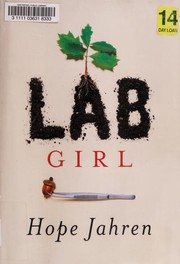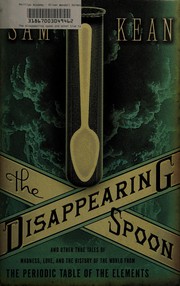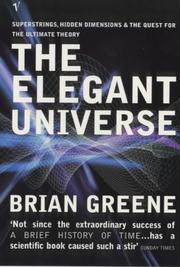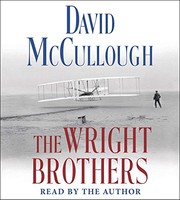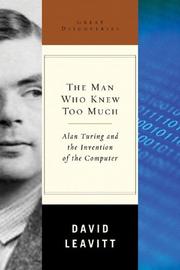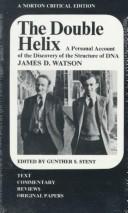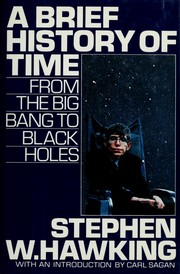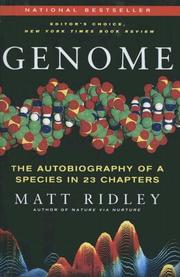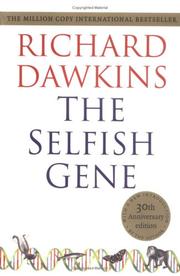Are you fascinated by the world-changing scientific discoveries that have shaped our understanding of the universe? Look no further than this curated list of the 20 best books on scientific discoveries. From groundbreaking theories to revolutionary experiments, these books delve into the stories behind some of the most influential scientific breakthroughs in history. Whether you’re a science enthusiast or simply curious about the mysteries of the natural world, these scientific discoveries books will captivate and inspire you with their gripping narratives and compelling insights. Get ready to embark on a journey through the wonders of scientific exploration and innovation.
Contents
- 1 20 Best Scientific Discoveries Books
- 2 Sapiens: A Brief History of Humankind
- 3 The Gene: An Intimate History
- 4 The Immortal Life of Henrietta Lacks
- 5 The Innovators: How a Group of Hackers, Geniuses, and Geeks Created the Digital Revolution
- 6 The Emperor of All Maladies: A Biography of Cancer
- 7 The Hidden Life of Trees: What They Feel, How They Communicate
- 8 Lab Girl
- 9 The Disappearing Spoon: And Other True Tales of Madness, Love, and the History of the World from the Periodic Table of the Elements
- 10 The Man Who Knew Infinity: A Life of the Genius Ramanujan
- 11 The Code Book: The Science of Secrecy from Ancient Egypt to Quantum Cryptography
- 12 The Sixth Extinction: An Unnatural History
- 13 The Elegant Universe: Superstrings, Hidden Dimensions, and the Quest for the Ultimate Theory
- 14 The Wright Brothers
- 15 The Man Who Knew Too Much: Alan Turing and the Invention of the Computer
- 16 The Origin of Species
- 17 The Double Helix
- 18 A Brief History of Time
- 19 Genome: The Autobiography of a Species in 23 Chapters
- 20 The Selfish Gene
- 21 Guns, Germs, and Steel: The Fates of Human Societies
- 22 Final Thoughts on Best Scientific Discoveries Books
- 23
20 Best Scientific Discoveries Books
Sapiens: A Brief History of Humankind
by Yuval Noah Harari
Sapiens: A Brief History of Humankind by Yuval Noah Harari is a captivating exploration of the history of our species. This thought-provoking book takes readers on a journey from the emergence of Homo sapiens in Africa to the present day, examining the key events and developments that have shaped human societies and cultures. Harari delves into a wide range of topics, including the cognitive revolution, the agricultural revolution, the rise of empires, and the impact of technological advancements.
Through a blend of anthropology, history, and biology, Sapiens offers a compelling narrative that challenges conventional wisdom and invites readers to reconsider their understanding of human history. Harari’s engaging writing style and ability to distill complex ideas into accessible prose make this book a must-read for anyone interested in the story of humanity. Whether you’re a history buff, a science enthusiast, or simply curious about our species’ past, Sapiens is a remarkable journey through the book about scientific discoveries.
The Gene: An Intimate History
by Siddhartha Mukherjee
The Gene: An Intimate History by Siddhartha Mukherjee is a compelling exploration of the fascinating world of genetics. Mukherjee takes readers on a journey through the history of scientific discoveries, from Mendel’s pea plants to the cutting-edge research of today. This book about scientific discoveries delves into the complex and often controversial implications of genetic research, from the ethical dilemmas of gene editing to the impact of genetic testing on our understanding of identity and disease. Through vivid storytelling and insightful analysis, Mukherjee provides a comprehensive overview of the scientific discoveries that have shaped our understanding of the gene, making this scientific discoveries book an essential read for anyone interested in the intersection of biology, genetics, and society. Whether you’re a seasoned scientist or a curious layperson, The Gene offers a thought-provoking and accessible exploration of one of the most important and revolutionary fields of modern science.
The Immortal Life of Henrietta Lacks
by Rebecca Skloot
The Immortal Life of Henrietta Lacks by Rebecca Skloot is a captivating non-fiction book about scientific discoveries, ethics, and the fascinating story of a woman whose cells have had a profound impact on modern medicine. Henrietta Lacks was a poor African American woman whose cancer cells were taken without her knowledge in 1951. These cells, known as HeLa cells, became one of the most important tools in medicine, leading to countless scientific discoveries and breakthroughs.
Skloot skillfully weaves together the personal story of Henrietta and her family with the larger ethical and scientific implications of her immortal cells. The book delves into the complex and often troubling history of medical experimentation on African Americans and the lack of informed consent in the medical field.
This scientific discoveries book is a thought-provoking exploration of the intersection between medical advancement and human rights. It sheds light on the often overlooked individuals whose contributions have shaped modern medicine and raises important questions about ethics and consent in scientific research.
The Innovators: How a Group of Hackers, Geniuses, and Geeks Created the Digital Revolution
by Walter Isaacson
The Innovators: How a Group of Hackers, Geniuses, and Geeks Created the Digital Revolution by Walter Isaacson is a captivating book about scientific discoveries. Isaacson takes readers on a fascinating journey through the history of technology, showcasing the brilliant minds and innovative ideas that have shaped the digital age. From the invention of the computer and the internet to the development of software and artificial intelligence, Isaacson explores the collaborative efforts and individual contributions of pioneers such as Ada Lovelace, Alan Turing, Bill Gates, and Steve Jobs.
Through engaging storytelling and in-depth research, Isaacson highlights the interconnectedness of these visionaries and the impact of their work on the modern world. He delves into the creative processes, breakthrough moments, and challenges faced by these trailblazers, offering valuable insights into the evolution of technology and the power of collaboration. With its blend of history, biography, and technology, The Innovators is a must-read for anyone interested in scientific discoveries book and the digital revolution.
The Emperor of All Maladies: A Biography of Cancer
by Siddhartha Mukherjee
The Emperor of All Maladies: A Biography of Cancer by Siddhartha Mukherjee is a captivating and insightful exploration of the history and impact of cancer. This Pulitzer Prize-winning book delves into the complex and often tumultuous journey of scientific discoveries in understanding and treating this formidable disease. Mukherjee skillfully weaves together the stories of patients, researchers, and medical professionals, offering a comprehensive and humanizing perspective on the relentless battle against cancer.
From ancient times to modern breakthroughs, the book chronicles the evolution of our understanding of cancer, shedding light on the triumphs and setbacks that have shaped the field of oncology. Mukherjee’s eloquent prose and meticulous research make this scientific discoveries book a compelling and enlightening read for anyone interested in the history of medicine and the human experience of illness. The Emperor of All Maladies is a testament to the resilience of the human spirit and the relentless pursuit of knowledge in the face of one of the greatest challenges of our time.
The Hidden Life of Trees: What They Feel, How They Communicate
by Peter Wohlleben
The Hidden Life of Trees: What They Feel, How They Communicate by Peter Wohlleben is a captivating book about scientific discoveries that reveals the fascinating world of trees. Wohlleben, a forester, shares his deep understanding of trees and their complex social networks, shedding light on the scientific discoveries that have unveiled the hidden lives of these seemingly silent beings.
Through engaging storytelling and scientific discoveries, Wohlleben uncovers how trees communicate, support each other, and even have feelings. He explores their ability to share nutrients and information through an underground network, and how they can warn each other of dangers. The scientific discoveries book also delves into the impact of human interference on forests and the vital importance of preserving their natural ecosystems.
Whether you’re a nature enthusiast or simply curious about the wonders of the natural world, The Hidden Life of Trees offers a captivating journey into the scientific discoveries that have transformed our understanding of these ancient beings.
Lab Girl
by Hope Jahren
Lab Girl by Hope Jahren is a captivating memoir that takes readers on a journey through the life of a passionate scientist. Through vivid storytelling, Jahren shares her experiences as a geobiologist, offering a unique perspective on the natural world and the process of discovery. This book is not just a book about scientific discoveries, but a deeply personal account of Jahren’s own struggles and triumphs in the male-dominated field of science.
Readers will be fascinated by Jahren’s exploration of the wonders of the natural world, from the intricate inner workings of plants to the complexities of the scientific process. Her writing is both poetic and informative, making this a truly captivating read for anyone interested in scientific discoveries and the pursuit of knowledge. Lab Girl is a testament to the power of curiosity and dedication, and a reminder of the incredible beauty and resilience of the world around us.
The Disappearing Spoon: And Other True Tales of Madness, Love, and the History of the World from the Periodic Table of the Elements
by Sam Kean
The Disappearing Spoon: And Other True Tales of Madness, Love, and the History of the World from the Periodic Table of the Elements by Sam Kean is a fascinating book about scientific discoveries. Kean takes readers on a journey through the periodic table, revealing the stories behind each element and the remarkable events and individuals that have shaped our understanding of the natural world.
Through engaging storytelling, Kean uncovers the dramatic and often quirky history of scientific discoveries, from the discovery of elements to the race for the Nobel Prize. The book delves into the lives of the scientists who made groundbreaking contributions to our knowledge of the elements, as well as the impact of these discoveries on society and culture.
With a blend of humor, intrigue, and insight, The Disappearing Spoon offers a unique perspective on the world of chemistry and scientific exploration. It is a must-read for anyone interested in the history of scientific discoveries, as well as those curious about the fascinating stories behind the elements that make up our world.
The Man Who Knew Infinity: A Life of the Genius Ramanujan
by Robert Kanigel
The Man Who Knew Infinity: A Life of the Genius Ramanujan by Robert Kanigel is a captivating biography of the Indian mathematical genius, Srinivasa Ramanujan. This book delves deep into the life of Ramanujan, who made significant contributions to the field of mathematics, despite facing numerous challenges and obstacles.
Through meticulous research and compelling storytelling, Kanigel paints a vivid picture of Ramanujan’s journey, from his humble beginnings in India to his groundbreaking work in the field of number theory and mathematical analysis. The book explores Ramanujan’s unique insights and his collaboration with the renowned mathematician G.H. Hardy, as well as the challenges he faced as a self-taught mathematician in a predominantly Western academic environment.
The Man Who Knew Infinity is a fascinating exploration of Ramanujan’s life and legacy, shedding light on his extraordinary intellect and the enduring impact of his scientific discoveries. Kanigel’s engaging narrative and profound insights make this book a must-read for anyone interested in the life of a mathematical genius and the world of scientific discoveries.
The Code Book: The Science of Secrecy from Ancient Egypt to Quantum Cryptography
by Simon Singh
The Code Book is a captivating exploration of the history and evolution of cryptography, from ancient civilizations to modern-day quantum cryptography. Simon Singh takes readers on a journey through the fascinating world of secret codes and ciphers, revealing the pivotal role they have played in shaping the course of history. This book on scientific discoveries delves into the stories of codebreakers and their ingenious methods of deciphering messages, as well as the development of groundbreaking encryption techniques. Singh skillfully weaves together the narratives of historical events and the science behind cryptography, making complex concepts accessible to readers of all backgrounds. With an engaging narrative style, this book about scientific discoveries is a page-turner that will leave readers with a newfound appreciation for the significance of secrecy and security in our modern world. Whether you are a history buff, a technology enthusiast, or simply curious about the art of secrecy, The Code Book is sure to captivate and enlighten.
The Sixth Extinction: An Unnatural History
by Elizabeth Kolbert
The Sixth Extinction: An Unnatural History by Elizabeth Kolbert is a captivating exploration of the current mass extinction event caused by human activity. Kolbert takes readers on a journey through time and across the globe, examining the impact of humans on the natural world and the resulting loss of biodiversity. Through a blend of captivating storytelling and in-depth scientific research, the book sheds light on the interconnectedness of all living beings and the devastating consequences of human actions.
This compelling book on scientific discoveries delves into the history of past extinctions and the groundbreaking work of modern-day scientists as they strive to understand and mitigate the current crisis. With a keen eye for detail and a gift for making complex concepts accessible, Kolbert presents a thought-provoking narrative that will leave readers with a deeper understanding of the fragility of our planet and the urgent need for conservation efforts. The Sixth Extinction is a must-read for anyone interested in the intersection of humanity and the natural world and offers a poignant reminder of the impact of our actions on the Earth.
The Elegant Universe: Superstrings, Hidden Dimensions, and the Quest for the Ultimate Theory
by Brian Greene
The Elegant Universe by Brian Greene is a captivating book on scientific discoveries that delves into the fascinating world of theoretical physics. Greene explores the revolutionary concept of superstrings, which suggests that the fundamental building blocks of the universe are not particles, but tiny, vibrating strings. He takes readers on a journey through the history of physics, from the early days of Newton and Galileo to the cutting-edge theories of today. Greene also discusses the concept of hidden dimensions and how they could potentially explain the mysteries of the universe, such as the nature of gravity and the behavior of subatomic particles.
Through clear and engaging prose, Greene brings complex scientific concepts to life, making them accessible to readers of all backgrounds. His passion for the subject shines through as he takes readers on a quest for the ultimate theory of the universe. Whether you’re a seasoned physicist or someone with a curious mind, this book about scientific discoveries is sure to captivate and illuminate.
The Wright Brothers
by David McCullough
The Wright Brothers by David McCullough is a captivating book about scientific discoveries that brings to life the incredible story of Orville and Wilbur Wright, the pioneering brothers who achieved the first successful powered flight. McCullough’s meticulously researched and beautifully written narrative takes readers on a thrilling journey through the brothers’ determination, ingenuity, and unwavering pursuit of their dream to fly.
Through vivid storytelling, McCullough paints a vivid picture of the challenges the Wright brothers faced, the setbacks they overcame, and the groundbreaking innovations they made in the field of aviation. Their relentless quest for flight is not only an inspiring tale of perseverance, but also a scientific discoveries book that sheds light on the revolutionary advancements that paved the way for modern air travel.
With its rich historical detail and compelling storytelling, The Wright Brothers is a must-read for anyone interested in the remarkable story behind one of the most significant scientific discoveries of the modern era.
The Man Who Knew Too Much: Alan Turing and the Invention of the Computer
by David Leavitt
The Man Who Knew Too Much: Alan Turing and the Invention of the Computer by David Leavitt is a fascinating book about scientific discoveries. It delves into the life and work of Alan Turing, a brilliant mathematician and codebreaker whose pioneering ideas laid the foundation for modern computing. Leavitt’s narrative skillfully weaves together Turing’s personal struggles and professional achievements, offering a compelling portrait of a complex and visionary man.
Readers will find themselves immersed in the world of wartime cryptography, as well as the intellectual ferment of mid-20th century Britain. Leavitt’s thorough research and engaging prose bring to life the exhilarating atmosphere of breakthroughs and setbacks that characterized scientific discoveries book.
With its blend of biography, history, and technology, The Man Who Knew Too Much is a must-read for anyone interested in the book on scientific discoveries and the remarkable individuals who shaped our modern world.
The Origin of Species
by Charles Darwin
The Origin of Species by Charles Darwin is a seminal book on scientific discoveries that revolutionized our understanding of the natural world. Published in 1859, this groundbreaking work introduced the theory of evolution by natural selection, challenging long-held beliefs about the origin of species. Darwin’s meticulous observations and compelling arguments laid the foundation for modern biology and continue to shape our understanding of the diversity of life on Earth.
Through detailed research and insightful analysis, Darwin presents a compelling case for the process of natural selection as the driving force behind the diversity of life forms. His book about scientific discoveries provides a comprehensive and compelling explanation for the interconnectedness of all living organisms, shedding light on the intricate mechanisms of adaptation and survival.
The Origin of Species is a timeless scientific discoveries book that continues to inspire curiosity and awe, inviting readers to explore the wonders of the natural world and the remarkable processes that have shaped life as we know it.
The Double Helix
by James D. Watson
The Double Helix by James D. Watson is a riveting book on scientific discoveries that chronicles the race to unlock the structure of DNA. With a blend of scientific insight and personal anecdotes, Watson takes readers on a captivating journey through the world of molecular biology. As one of the key figures in the groundbreaking discovery, Watson provides a firsthand account of the intense competition, the exhilarating breakthroughs, and the complex personalities involved in unraveling the mystery of DNA. This scientific discoveries book offers a rare glimpse into the human side of scientific exploration, with its mix of ambition, rivalry, and moments of sheer brilliance. Through vivid storytelling and sharp wit, Watson brings to life the exhilarating quest that ultimately led to one of the most significant scientific discoveries of the 20th century. The Double Helix is a must-read for anyone fascinated by the inner workings of scientific discovery and the captivating personalities behind them.
A Brief History of Time
by Stephen Hawking
A Brief History of Time, written by the renowned physicist Stephen Hawking, is a captivating exploration of the complexities of the universe. This groundbreaking book on scientific discoveries takes readers on a journey through the history of our understanding of space, time, and the fundamental laws that govern the cosmos. Hawking delves into the mysteries of black holes, the big bang theory, and the nature of time itself, offering insights that challenge our perceptions of the universe.
With a clear and accessible writing style, Hawking breaks down complex scientific concepts for readers of all backgrounds, making this book about scientific discoveries an enlightening and thought-provoking read. From the origins of the universe to the search for a unified theory of everything, A Brief History of Time offers a fascinating glimpse into the frontiers of modern physics. Whether you’re a science enthusiast or simply curious about the nature of reality, this scientific discoveries book is sure to leave you pondering the wonders of the cosmos.
Genome: The Autobiography of a Species in 23 Chapters
by Matt Ridley
Genome: The Autobiography of a Species in 23 Chapters by Matt Ridley is a captivating book on scientific discoveries that takes readers on a fascinating journey through the intricacies of the human genetic code. With each chapter dedicated to a different chromosome, Ridley delves into the scientific discoveries that have shaped our understanding of genetics and the implications for human health, behavior, and evolution.
Through engaging storytelling and accessible language, Ridley explores the history of genetics, from the early days of Mendel’s pea experiments to the cutting-edge technologies of the Human Genome Project. He discusses the role of genes in shaping our physical traits, intelligence, and susceptibility to diseases, offering a thought-provoking look at the intersection of nature and nurture.
With its blend of scientific insight and narrative flair, Genome is a must-read for anyone interested in scientific discoveries and the profound impact of genetics on our lives. Ridley’s exploration of the human genome is sure to leave readers with a newfound appreciation for the marvels of our genetic blueprint.
The Selfish Gene
by Richard Dawkins
The Selfish Gene by Richard Dawkins is a groundbreaking book on scientific discoveries that explores the concept of evolution from a gene-centered perspective. Dawkins argues that genes, rather than organisms, are the driving force behind evolution, and that they are ‘selfish’ in their quest for survival and replication. This paradigm-shifting book about scientific discoveries challenges the traditional view of evolution and provides a compelling explanation for the diversity of life on Earth.
Dawkins’ engaging writing style and thought-provoking ideas have made The Selfish Gene a classic in the field of evolutionary biology. The book delves into the intricate mechanisms of genetic replication and natural selection, offering readers a deeper understanding of the forces that shape the natural world. Whether you’re a science enthusiast or simply curious about the mysteries of life, this scientific discoveries book is sure to captivate and educate you with its fascinating insights.
Guns, Germs, and Steel: The Fates of Human Societies
by Jared Diamond
Guns, Germs, and Steel: The Fates of Human Societies by Jared Diamond is a groundbreaking book about scientific discoveries that examines the factors that have shaped human history. Diamond explores how geography, the development of agriculture, the domestication of animals, and the spread of germs have influenced the rise and fall of human societies.
This scientific discoveries book challenges traditional views of human history and offers a compelling argument for the unequal distribution of power and wealth across different societies. Diamond’s engaging writing style and in-depth research make this book a fascinating and enlightening read for anyone interested in understanding the forces that have shaped our world.
Through a combination of anthropology, archaeology, and evolutionary biology, Diamond provides a comprehensive analysis of the factors that have led to the dominance of certain societies over others. Guns, Germs, and Steel is a thought-provoking and eye-opening exploration of the intricate web of scientific discoveries that have shaped human societies throughout history.
Final Thoughts on Best Scientific Discoveries Books
Exploring the world of science through literature is both enriching and enlightening. The 20 best books about Scientific Discoveries covered in this article offer a fascinating journey through the history and impact of various breakthroughs. From the depths of the ocean to the vastness of space, these books provide a deeper understanding of the remarkable achievements that have shaped our understanding of the world. Whether you’re a science enthusiast or simply curious about the wonders of the universe, these books are sure to captivate and inspire.
Which book about Scientific Discoveries is best?
The best book on Scientific Discoveries can vary with personal preference, but three widely recommended titles are:
- Sapiens: A Brief History of Humankind by Yuval Noah Harari,
- The Gene: An Intimate History by Siddhartha Mukherjee,
- The Immortal Life of Henrietta Lacks by Rebecca Skloot.
Each offers valuable insights and could be a great starting point.
What are the best books to learn about Scientific Discoveries?
For those looking to learn about Scientific Discoveries, there is a wealth of literature that can provide a comprehensive understanding of the subject. Some of the most highly recommended books include:
- Sapiens: A Brief History of Humankind by Yuval Noah Harari,
- The Gene: An Intimate History by Siddhartha Mukherjee,
- The Immortal Life of Henrietta Lacks by Rebecca Skloot,
- The Innovators: How a Group of Hackers, Geniuses, and Geeks Created the Digital Revolution by Walter Isaacson,
- The Emperor of All Maladies: A Biography of Cancer by Siddhartha Mukherjee,
- The Hidden Life of Trees: What They Feel, How They Communicate by Peter Wohlleben,
- Lab Girl by Hope Jahren,
- The Disappearing Spoon: And Other True Tales of Madness, Love, and the History of the World from the Periodic Table of the Elements by Sam Kean,
- The Man Who Knew Infinity: A Life of the Genius Ramanujan by Robert Kanigel,
- The Code Book: The Science of Secrecy from Ancient Egypt to Quantum Cryptography by Simon Singh
These books offer a range of perspectives on Scientific Discoveries, covering various aspects and approaches to the subject.
What are the best books about Scientific Discoveries?
The best books about Scientific Discoveries are:
- Sapiens: A Brief History of Humankind by Yuval Noah Harari,
- The Gene: An Intimate History by Siddhartha Mukherjee,
- The Sixth Extinction: An Unnatural History by Elizabeth Kolbert,
- The Elegant Universe: Superstrings, Hidden Dimensions, and the Quest for the Ultimate Theory by Brian Greene,
- The Disappearing Spoon: And Other True Tales of Madness, Love, and the History of the World from the Periodic Table of the Elements by Sam Kean,
- The Hidden Life of Trees: What They Feel, How They Communicate by Peter Wohlleben.
Each offers unique insights into the subject. While these books about Scientific Discoveries are highly regarded, it’s important to note that any list of ‘best’ books is subjective and reflects a range of opinions.
What are the best Scientific Discoveries books of all time?
Choosing the best Scientific Discoveries books of all time can vary depending on who you ask, but five titles that are often celebrated include
- Sapiens: A Brief History of Humankind by Yuval Noah Harari,
- The Gene: An Intimate History by Siddhartha Mukherjee,
- The Emperor of All Maladies: A Biography of Cancer by Siddhartha Mukherjee,
- The Disappearing Spoon: And Other True Tales of Madness, Love, and the History of the World from the Periodic Table of the Elements by Sam Kean,
- and The Sixth Extinction: An Unnatural History by Elizabeth Kolbert.
Each of these books has made a significant impact in the field of Scientific Discoveries and continues to be influential today.







